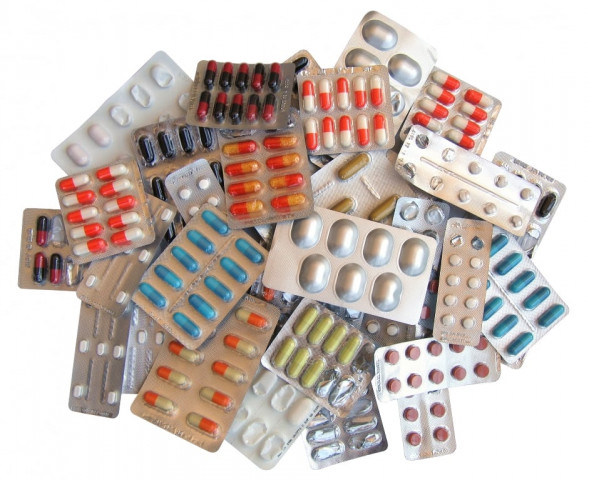Health sector: Corruption plagues ailing drug industry
Drug inspectors say corruption is rampant in the pharma industry.

Health sector: Corruption plagues ailing drug industry
Over 55,000 medicines are registered in Pakistan as opposed to 5,000 in the United States, according to statistics available with the Pakistan Medical Association.
But before one rejoices in what may appear to be an achievement in the country’s health sector, the reason for the considerable difference in the statistics is rampant corruption. The biggest indicator of corruption, in the sector, is the over-licencing of medicines in Pakistan.
“How can Pakistani authorities manage such a large industry with a workforce they currently have?” questioned PMA Secretary Dr Izhar.
Professor Dr Mahboob Rabbani, one of the members of the Provincial Quality Control Board for medicines in Punjab, said that the rise in the number of registrations and licencing has to do with political influences within the health ministry. He added that their hands are tied. “It is wrong, but we are unable to do anything about it because it’s a federal ministry subject,” he confessed.
“According to a survey we carried out, almost 90% of doctors in small clinics were not qualified professionals,” said Dr Masood Sheikh, a health official in Punjab, who is currently posted as a medical superintendent at a government hospital.
The 55,000-plus registered medicines are being pumped into government and private hospitals, pharmacies and small clinics in almost every neighborhood of Pakistan.
“Local manufacturing brand of medicines will become riskier in the coming days. I do not trust them myself,” a drug inspector in Lahore told The Express Tribune on the condition of anonymity.
“Some medicines out there are dangerous. But they will work, because of their strong ingredients – it’s like killing an ant with a hammer,” he said, describing the relationship between the disease and effects of the medicines being supplied in the market.
The inspector said that the health system desperately needs to be improved, otherwise it could collapse. The previous structure had a confusing system with provincial and federal departments overlapping in responsibility.
“Local drug testing labs have failed. The Punjab chief minister sent medicines abroad for testing, which shows that even he does not trust them (local labs).”
He referred to the recent deaths in Lahore, in which over 150 heart patients died after consuming a contaminated pill handed out by the Punjab Institute of Cardiology, as just an ‘alarm’ for the drug regulatory authority in Pakistan to wake up.
Dr Rabbani said that the Quality Control Board for medicines in Punjab is yet to convene a meeting following the spurious medicines incident, reflecting no urgency for it.
Rampant corruption
The reason the drug industry is so non-regularised, the drug inspector said, is due to corruption that exists in every stage – from the manufacturing to the retailing of medicines in private and government sectors.
“There are such big fish in the pharma industry that we cannot visit them without risking being transferred by our superiors to remote areas in Punjab,’ he alleged. He added that he had been threatened with transfer once when he pointed to a medicine factory with substandard production quality.
“It’s a billion-dollar industry and paying a few officials is much profitable than raising the standards,” he said. The drug inspector, who has been in the business for over 12 years and is also a professor at a medical school, added that he himself is part of the chain of corruption because there is no survival without it.
The drug inspector further said that his colleagues openly say they have paid government officials for their position and are only in the profession to make money.
“Only trust brands that have international laboratory tests because in Pakistan, because drug testing laboratories in Pakistan have no state-of-the-art equipment, nor are the higher-ups interested in upgrading them,” he warned. He further felt that not only is the implementation of the Drug Act, 1976 weak, but it is also an old law. However, with the president recently approving establishment of a central drug regulatory agency and amendments in the law, there is hope that things may change.
“Pakistan’s pharma industry has lost its reputation after the Lahore deaths. We need to bring testing laboratories at par with international standards and reduce the number of registered companies,” the inspector said. “We also need honest officials at the top, who do not work in collusion with the manufacturers. Otherwise, there are more dark days ahead.”
Published in The Express Tribune, March 8th, 2012.



















COMMENTS
Comments are moderated and generally will be posted if they are on-topic and not abusive.
For more information, please see our Comments FAQ